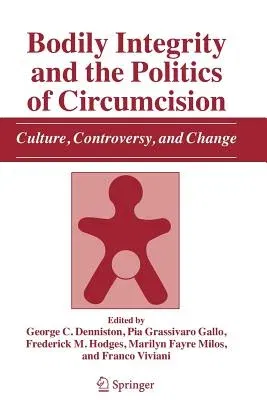How is it that, at the beginning of the twenty-first century, it is
still possible for males and females to be denied their inherent right
to keep all the body parts with which they were born?
Circumcision is a cultural phenomenon that affects 15.3 million children
and young adults annually. In terms of gender, 13.3 millions boys and 2
million girls are subjected to the involuntary removal of part or all of
their external sex organs every year. Few people, however, ask why such
practices persist or how modern societies can tolerate this inherent
violation of human rights. The problem of female circumcision is being
addressed on an international level, while male circumcision remains a
subject many academics are reluctant to fully or impartially examine.
This book explores the problem of male and female circumcision in modern
society from religious, anthropological, psychological, medical, legal,
and ethical perspectives.
Bodily Integrity and the Politics of Circumcision: Culture, Controversy,
and Change illuminates the vulnerability of human society to medical,
economic, and historical pressures. It provides a much-needed,
thoughtful, and detailed analysis of the devastating impact of
circumcision on bodily integrity and human rights, and it provides hope
for change.


